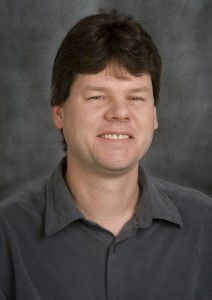Biology Research project awarded NSF grant
The National Science Foundation approved a $150,000 collaborative research grant in December for the Biological Science department to continue a research project that will study hybridization among two species of topminnow fish.
Research for the project will continue this summer with experimentation and analysis split at labs in SIUE’s Science Building West and Southern Mississippi’s campus in Hattiesburg, MS. Dr. Jacob Schaefer, a former SIUE professor, now teaching at SMU, began collaborating with Duvernell on the project during Schaefer’s final year at SIUE in 2004.
“It’s nice to get this funding,” Duvernell said. “We’re very pleased to have NSF supporting the next phase of this project.” Research on a previous NSF grant was completed in 2012 and the professors have been continuing this work with limited funds in the last couple years.
Duvernell said that recent studies have shown that researchers’ view of hybridization has changed. Previously, the professor said that researchers thought hybridization could undermine the distinctive qualities that make a particular species unique. Under the right circumstances, hybridization could actually be beneficial to a species, the professor said. Duvernell and Schaefer will study chromosome rearrangements that are a part of the genomic makeup of the two species. The professors’ work on the subject has been published in academic journals, including Ecology of Freshwater Fish.
“This is not uncommon in nature for closely related species to have different numbers of chromosomes,” Duvernell said. “Those chromosomal rearrangements can lead to reproductive isolation and they can also limit recombination that can occur in those chromosomes in hybrids. Because the fish that we study do differ in number of chromosomes in interesting ways, we want to see if chromosomal rearrangements can influence how genetic exchange takes place. And we would like to use these fish as a model to see if the chromosome rearrangements that have occurred have less evidence of genetic exchange than where chromosome rearrangements have not occurred within the genomes of these fish.”
Top minnows are small, freshwater fish found in the Midwest and the South. The research will focus on three species – the blackstripe, blackspotted and broadstripe topminnows. During the three-year project Duvernell and Schaefer will travel to sites at various states in the Mississippi River basin region to collect samples. Undergraduate and graduate students will contribute to the research and analyses at the SIUE and Southern Mississippi campuses. The professors will attempt to quantify total hybridization and introgression patterns in eight hybrid zones, identified in previous research on the species. Additionally, the professors and teams of students will conduct breeding experiments in labs.
“Chromosomal rearrangements between closely related species are quite common and nobody knows for sure exactly how important those chromosomal rearrangements are in preventing hybridization between species and preventing genetic exchange between those species,” Duvernell said. “And because these fish differ in number of chromosomes they provide us an opportunity to evaluate that question.”
Filed Under: Biological Sciences • Uncategorized













